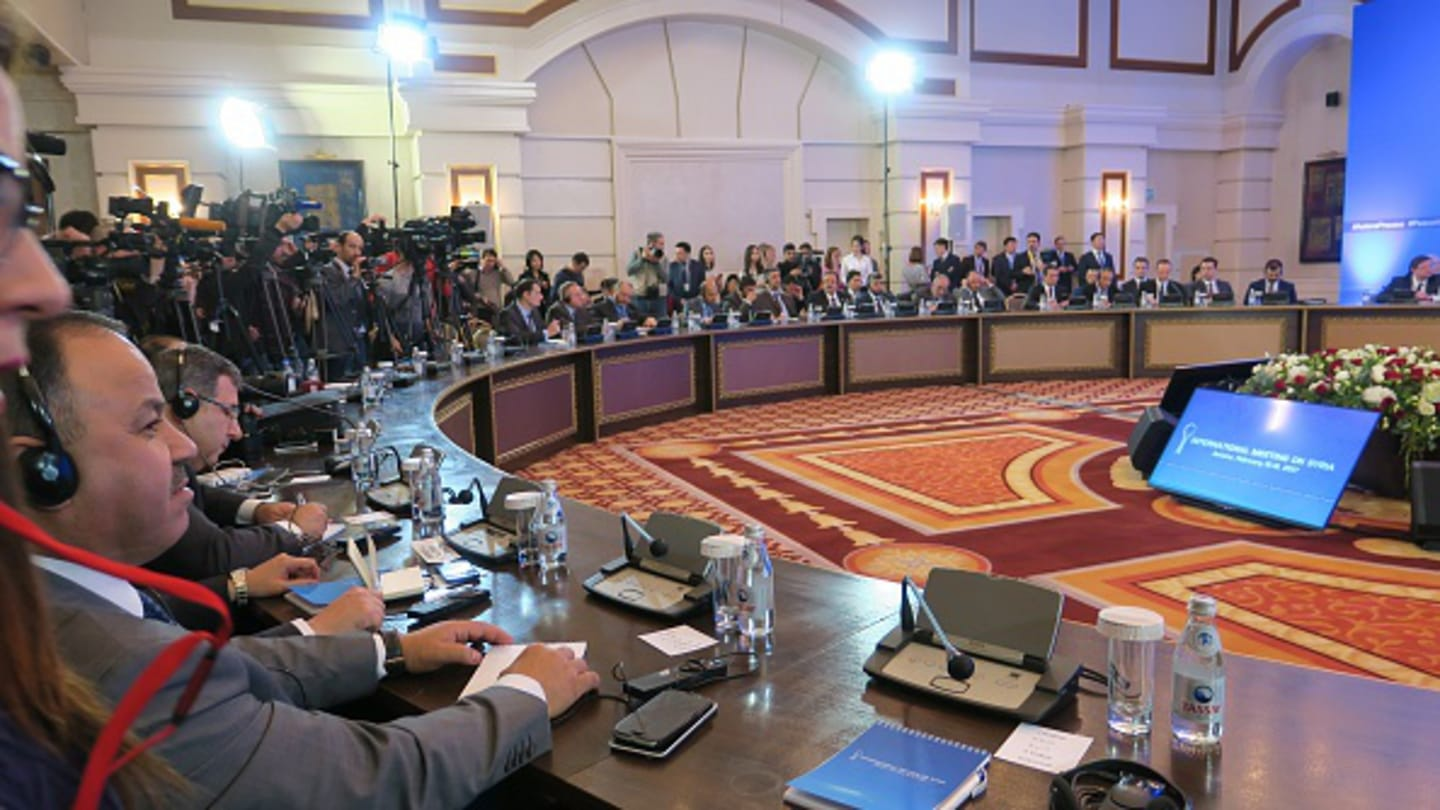Observers believe next Astana peace talks will be unfruitful
QAMISHLI, Syria (North Press) – Preceding any round of Astana peace talks to resolve the Syrian crisis, Turkey and Russia usually escalate their mutual messages to each other through bombing the areas of influence of the other party in Syria in order to obtain the largest amount of gains at the expense of the other side.
Russian Minister of Foreign Affairs Sergey Lavrov announced yesterday that the next meeting of the Astana peace talks on Syria would be held in Kazakhstan in a few weeks.
“I am sure we will consider additional steps that can be taken (regarding the settlement),” Lavrov said at a press conference last month.
Russia, by using its warplanes, has escalated over the past period bombing separate areas in Idlib and in Zawiya Mountain in particular, as well as targeting the vicinity of Turkish points in the area.
Mutual pressure
Press reports, citing informed sources, said Russia aims, through this escalation, to open the issue of the M4 Highway in the next round of Astana talks. The highway links the Syrian coast to the city of Aleppo in the north of the country, and it is of vital importance both from a strategic military perspective as well as an economic one to the Syrian government, and thus Turkey rejects it.
As for Turkey, it has sent similar messages to Moscow, but in northeast Syria, where it continues to target Manbij and Ain Issa, which has a Russian base, in addition to targeting the vicinity of Tel Tamr, and using its drones.
Contrary to what the statements of the two parties show in public, what is actually happening indicates positions or perhaps other understandings, according to observers.
In October, Lavrov stressed the need to complete agreements between the Russian President and the Turkish President, in order to isolate those he described as “terrorists,” referring primarily to Hayat Tahrir al-Sham (HTS), which controls the Idlib region.
Turkey, however, does not move a finger in Idlib, neither with regard to the Russian bombing nor its pledge to isolate the HTS, and all it does is fortifying its positions in the region.
At the same time, Lavrov keeps taking advantage of any opportunity, when it comes to talking about Syria, by stressing the need to eliminate “terrorists”.
In a speech before the Russian Federation Council on December 1, Lavrov said his country would continue its efforts to completely eliminate extremist groups in Syria and settle the regional crises.
Unfruitful meetings
In a press conference held in New York on the sidelines of the 76th session of the United Nations General Assembly, last September, the Russian Foreign Minister said: “There is only one terrorist hub left in Syria, and that is Idlib, and there is no problem with combating terrorism there.”
Earlier today, the Kazakh Ministry of Foreign Affairs spokesperson, Aibek Smadiyarov, announced that the 17th round of the Astana peace talks will be held in Nur-Sultan city on December 21 and 22.
On July 8, the 4-day 16th round of Astana talks were concluded in Kazakhstan with the participation of Iran, Russia and Turkey.
Like previous rounds, the mechanism for the delivery of international assistance and the resumption of the work of the Syrian Constitutional Committee, were discussed, but nothing was achieved.
The first Astana sessions began on January 23, 2017, in the Kazakh capital, in the presence of representatives of the Syrian government and the opposition, and under the auspices of the guarantor states (Russia, Turkey and Iran).
Observers believe that the next round of the talks will result nothing different from its predecessors, as long as Russia and Turkey seek to achieve the greatest benefit and influence on Syrian territory, in light of their conflicting interests in the areas they control.

